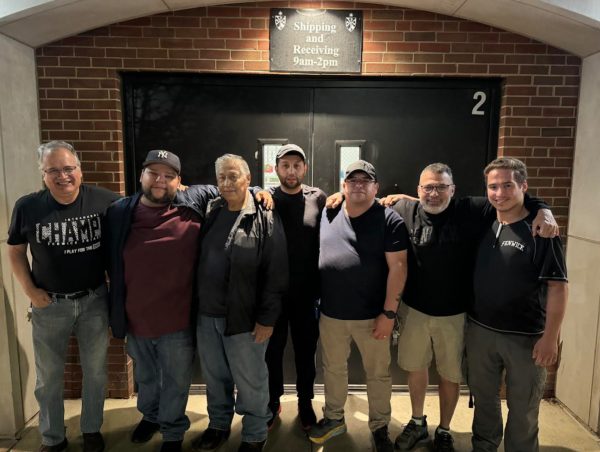Theology Curriculum Transcends Catholicism
As students at a Catholic school, it is easy to forget about religions other than the Catholicism that is studied in Theology classes. A class at Fenwick, Interreligious Dialogue, aims to bring to light other important religions in the world while having a conversation about how they interact with Catholicism.
Three times a semester, Mr. Mulcahy’s senior Interreligious Dialogue class has the option to take a field trip to a different place of worship. These options include the Hindu Temple in Lemont, the Zoroastrian Temple in Burr Ridge, and the Kadampa Buddhist Meditation in Oak Park. Through these field trips, as well as through a series of lectures and events at Elmhurst College, students get a first-hand look at other religions and their different practices and beliefs. Beyond these learning experiences, a rabbi has been coming to talk with classes once a semester for the past few years. Rabbi Bob often keeps in touch with Fenwick students after the lecture and even after graduation. Mr. Mulcahy says he is “a gift to our community with his willingness to come and share his wisdom with our students.”
The most recent lecture attended bythe class had a turnout of 51 students. The Bernardin Lecture was given by the Bishop of the Diocese in Joliet, Daniel Conlon. In his discussion, he considered whether or not Jesus intended to establish a church. Upon learning that there were Fenwick students in the audience, he talked about how he was from Cincinnati, where Bishop Fenwick was from, and how he has a special affection for the figure.
One especially interesting field trip is the upcoming March outing to the Zoroastrian Temple in Burr Ridge. Zoroastrianism is the oldest monotheistic religion in the world. Founded sometime between 1700-1000 BC, Zoroastrianism is based on the teachings of Zarathustra, a contemporary of Moses. Zoroastrianism focuses on the struggle between good and evil, believing that any choice someone makes contributes to either the good side or the evil side. Zoroastrian Aban Grant believes that Zoroastrianism is an easy religion to follow, saying that “It is a religion of personal choice, responsibility and consequences. Zoroastrianism is not a prescriptive religion but an ethic of personal choice… Our morality can be summed up by Good Thoughts, Good Words, Good Deeds – we know if we can follow these we will be able to lead good lives.” Though Zoroastrianism does not allow converts – only those born to a Zoroastrian parent can practice the religion – it deeply affects Catholic belief, as well as many other monotheistic religions. The words ‘Satan’, ‘paradise’, and ‘Amen’ come directly from Zoroastrianism. Shared beliefs also include eternal life after death and individual judgement after death.
Exposure to different religions in a learning setting is increasingly important in this time, and the experience students are able to have with Mulcahy’s class is invaluable. In today’s world, being able to work cohesively with people of other religions is an incredibly important skill, and having the ability to utilize this skill will help Fenwick students in the future to be valued members in whichever path they choose to follow.



